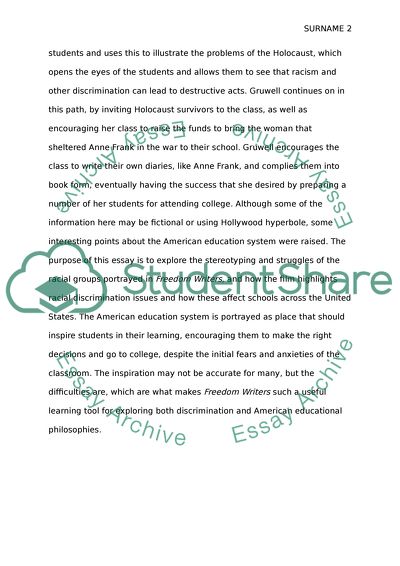Cite this document
(Freedom Writers and the American Education System Term Paper, n.d.)
Freedom Writers and the American Education System Term Paper. Retrieved from https://studentshare.org/education/1396337-what-does-gender-or-race-have-to-do-with-it-see
Freedom Writers and the American Education System Term Paper. Retrieved from https://studentshare.org/education/1396337-what-does-gender-or-race-have-to-do-with-it-see
(Freedom Writers and the American Education System Term Paper)
Freedom Writers and the American Education System Term Paper. https://studentshare.org/education/1396337-what-does-gender-or-race-have-to-do-with-it-see.
Freedom Writers and the American Education System Term Paper. https://studentshare.org/education/1396337-what-does-gender-or-race-have-to-do-with-it-see.
“Freedom Writers and the American Education System Term Paper”, n.d. https://studentshare.org/education/1396337-what-does-gender-or-race-have-to-do-with-it-see.


